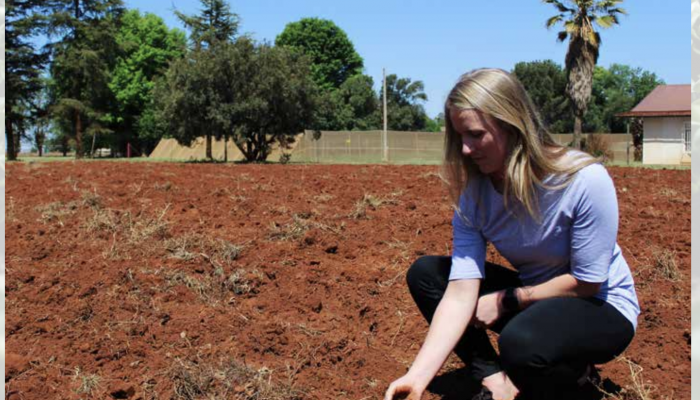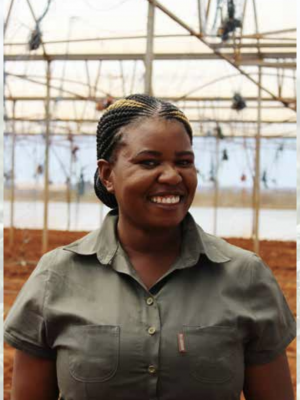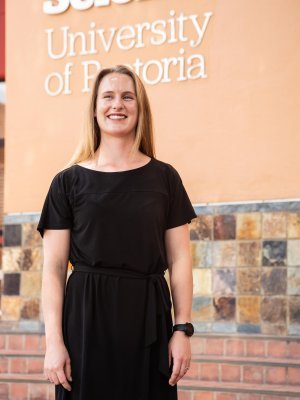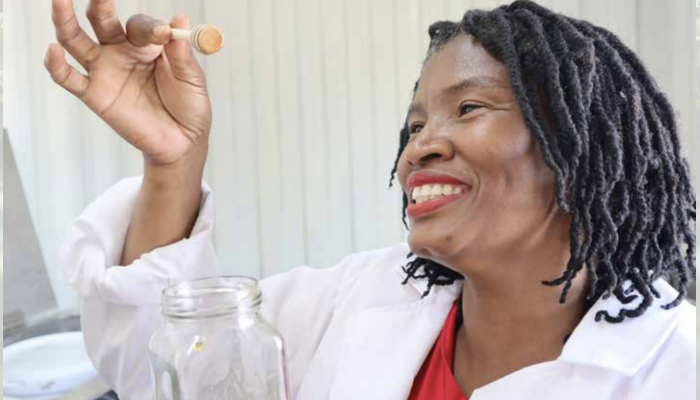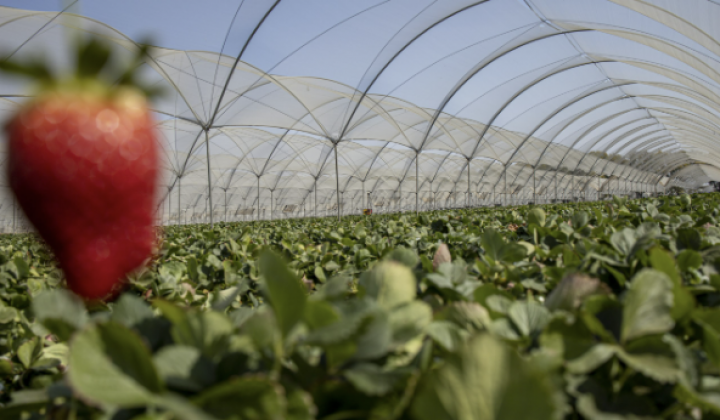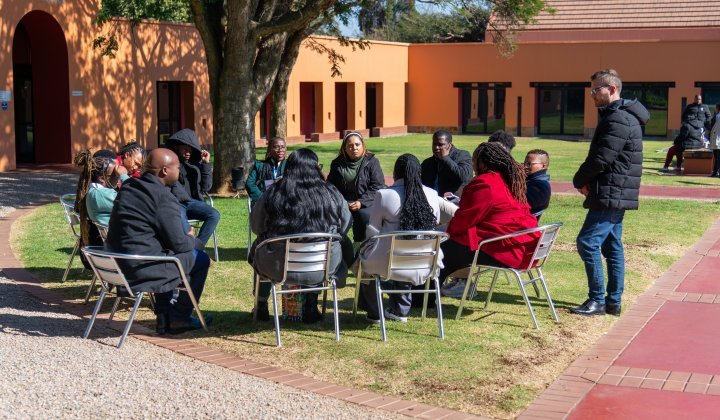Often touted as a portent of business success or failure, the first 100 days of Khethiwe Maseko’s entrepreneurial venture gave her two major reasons to call it quits. First, she realised she had an allergy to her primary product, and then 70% of her initial inventory perished. Nonetheless, Maseko decided it was too early to give up on her business, Gugulam Poultry House.
Given that her noble efforts to keep the chicks she’d purchased warm through the night affected her health, Maseko stopped sleeping with them in what had been a shack converted into a coop. As her allergy symptoms started to dissipate, however, the chicks started dying. Only 15 of the 50 originally purchased survived.
Maseko resolved that for Gugulam to survive, she’d need to sell the remaining 15 chicks fast. Managing to do this marked a turnaround in her entrepreneurial fortunes successfully. Since then, she’s kept the business going for well over 1,000 days, notching up personal and corporate victories, including graduating from the GIBS/Corteva Agriscience Women in Agriculture pilot programme.
Equipped to bloom
When she submitted her application to GIBS, Maseko struggled to keep Gugulam afloat. “I was badly affected by Covid-19,” she recalls. “My business was at the edge, and I really did not know what to do.” Having started poultry farming out of a need to be self-sufficient rather than remain unemployed, Maseko didn’t want to fail at this venture, and she’d already invested too much.
This drive for survival through farming is a common scenario, says Miranda Hosking, Executive Director for Social Education at GIBS. “Agriculture is central to the livelihoods of many women. In 2017, more than 4,000 women actively ran farms in South Africa, which translates to one out of every 10 farmers in the country.”
In partnership with GIBS, agricultural chemical and seed company, Corteva, aims to boost this number. Responding to insights from a study that investigated women's experiences in the agricultural sector, Corteva enlisted GIBS to pilot a comprehensive curriculum aimed at capacitating a cohort of 35 women entrepreneurs in the agriculture sector with business management, leadership, and entrepreneurial skills. Their study elucidated the impact of gender inequality in agriculture, with research revealing that the top three constraints women faced were access to land, access to finance and limited opportunities for leadership training.
Maseko was a delegate facing some of these difficulties. However, she says being part of the pilot in 2021 changed the trajectory of her enterprise. “For me, the most important module we went through was entrepreneurship. This was important because it reminded me that I am an entrepreneur and a problem solver. Financial management and pricing were also very important because the information I learned there gave me tools to save my business.”
Most participants on the programme had started their own ventures, but others, like Renate Griessel, came to farming by joining an existing enterprise. After studying industrial engineering and working in corporate for a few years, Griessel decided to try a new career path in 2018. She joined Polyorganics, a Gauteng-based composting business started by her brother, Francois, four years earlier. This meant that she didn’t have the start-up knowledge and personal lessons acquired by others.
“My biggest challenge, in the beginning, was confidence. When you’re working in isolation within your business, and you see how other businesses are thriving while your business goes through tough times, it’s difficult to stay positive and confident in your own and your business’ abilities. Being a part of the GIBS programme gave me an opportunity to see that most small businesses have gone through or are going through similar challenges. Being aware of a community of people who have faced and overcome similar challenges instilled a sense of confidence in me and our business that we would be able to do the same.”
Setting down the right roots
While Maseko solidified the foundations of her entrepreneurial savvy, and Griessel benefited from a morale and mettle boost, one delegate's most important lesson was logistical.
Metsana Kojane, the founder of Eden Roots, a North West impact-driven, eco-friendly agribusiness, applied for the programme at a time when she was worried the venture might not survive the Covid-19 lockdown. “I had many fears and many unanswered questions. I was worried about the welfare of my employees. I was renting factory space in a prime industrial area, so rent was also a concern.”
Focused on horticulture, beekeeping and agro-processing, Eden Roots is a business with a social mission. When crafting the service offering, Kojane wanted to produce natural honey and create agri-processing jobs for women in her community by using the wax, propolis and royal jelly from her raw honey hives to build a natural skincare brand. Unfortunately, this all came under jeopardy when Eden Roots looked likely to fold.
Through the educational coursework, mentorship sessions and networking opportunities with other farmers provided through the Agriscience programme, Kojane realised she could make significant savings by changing the address of her factory.
“Because of this programme, I realised I could operate from my address in Tloung Village and trade globally. I was renting at a factory in an industrial area because I wanted an 'acceptable' or 'dignified' address that buyers would take seriously,” she admits. “I thought my address in the village was not good enough.”
After graduating from GIBS, Kojane moved out of the rented factory space and started to develop her small industry in the village.
This local impact is the necessary and hoped-for domino effect of investing in women, says Tony Esmeraldo, business director of Corteva Agriscience, South Africa. “Women play a critical role in agriculture and have the ability to produce and make money, to uplift their communities, and ensure that their employees and their families have access to education and what they need to be successful.”
Agricultural endeavours have a vital role to play in society. Not only can they help feed families, but they can also safeguard lives. For example, Maseko says that she could only escape domestic violence in a previous relationship because she was financially independent. Before starting Gugulam, she’d endured abuse because she couldn’t provide for herself.
Now, as an empowered entrepreneur, she’s not only able to survive but to dream of the future. “Since graduating from GIBS, my business has increased its revenue, and I’ve identified new business opportunities. I want to be a commercial farmer and one day be a supplier for big supermarkets.”
With the delegates of the pilot programme chasing their agrarian goals, GIBS is now focusing on the participants of the official programme. The new year-long, tailor-made offering started in June 2022 with a cohort of 30 farmers who will likely go on to both feed and change the world.
Growing the numbers
To facilitate and encourage more women to join agricultural businesses, the Agriscience report by Corteva suggests that the government and other stakeholders need to take the following actions:
- Facilitate education and training opportunities by improving access to an academic education that will open technical career paths and provide financial support to women through partnerships with educational institutions at a secondary and higher level.
- Raise awareness about success stories in agriculture by highlighting the profiles of leading women and creating platforms for women in the sector to share their experiences with others.
- Overcome gender prejudice by improving access to finance in agriculture. This can be achieved through working with the financial sector to ensure that women have equal access to finance and credit as men. Women also need support when they face discrimination. Partnerships with government and non-governmental organisations (NGOs) to reform policies and practices marginalising women can play a critical role.
- Reduce attrition through interventions that improve work/life balance. Women experience various challenges such as transport, intermittent work, daycare, and personal safety.
- Modernise systems and practices as needed by teaching women how to make optimal use of technology. For example, advances in agriculture have made it possible for farmers to switch from the uniform treatment of fields to applying specific treatments to areas with the benefit of reduced use of water, fertiliser and pest control. Placing these tools and technologies in the hands of women at the grassroots level could bridge the digital divide.
Why small-scale farming matters
- Africa faces a burgeoning health crisis of lifestyle diseases, such as diabetes. Many of these are driven by the increased consumption of refined foods. Previously, subsistence farming allowed for healthier traditional diets.
- Commercial farming production on a big scale relies on systems that can degrade soil health and negatively affect the environment for future generations. It also tends to favour the production of commodities for which there is an expanding market, but proper assessments of the suitability of local soil are rarely conducted.
- African children have a high incidence of stunted growth due to poor nutrition, particularly in early childhood. This could be improved by increasing the share of fresh produce in diets to raise their nutritional quality.
Planting the seeds
Starting in June 2022 and concluding with a certificate ceremony in March 2023, the current cohort of the Corteva/GIBS Agriscience programme delivers a customised entrepreneurship development offering. Participants will be equipped to improve their existing agricultural businesses by drawing on best practices in entrepreneurship training and lessons learned from the 2021 iteration. In addition to individual mentorship sessions, field trips and in-class simulations to teach financial and operational decision-making, delegates will also be led through reflective exercises to learn problem-solving and make predictions about the future. Topics covered during the course include:
- Leading others
- Developing entrepreneurial competencies
- Financial management for agricultural businesses
- Strategic management and operations management
- Farming for the future – policy, regulation and legislative framework in agriculture


